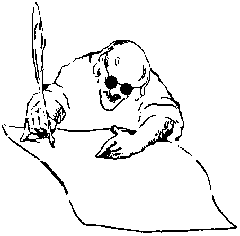
 |
 |

| Wednesday, April 24, 2024 |
Miles from the Mainstream |
D.
R. ZUKERMAN, proprietor |
Some Additional Wabigoon Thoughts
August 5, 2016 -- The end of July was the heart of the Wabigoon-Wahanda season, as indicated with counselors were busy writing mid-season reports to be sent to the parents of their campers. (Not a discouraging word would appear in these reports.) By this point in the eight-week season, camp life had long become routine – getting up to Reveille, breakfast, bunk inspection, morning activity, morning swim, lunch, rest hour, milk and cookies, afternoon activity, afternoon swim, dinner, evening activity, Taps. It almost seemed as if this life would just go on and on. In truth, by the time we reached August, we were on a fast track to the end of the season. The seniors at Wabigoon and Wahanda mainly spent the first two weeks in August rehearsing the annual “Big Show” – a Broadway musical. At the same time, the Color War generals had been picked and spent their free time, those first two weeks in August, preparing for Color War, which would break the Sunday after the Big Show, which was produced on a Saturday night in mid-August. After Color War, random days of desultory activity with the senior prom, and then the banquet at season’s end. Amazingly, it was sixty years ago – the summer of 1956 – that seniors from Camps Wabigoon and Wahanda, hanging out on the porch of the Wahanda rec hall, waiting to be called to rehearse their scenes in the Big Show of 1956 – “Guys and Dolls”—listened to a radio broadcast of the balloting at the Democratic National Convention for vice president. |
(I write “amazingly” because 1956 to this writer, today, does not seem 60 years away, while, in 1956, to a 16-year old, going back 60 years to 1896, would have seemed like ancient times.) Adlai E. Stevenson, nominated for the second time as presidential nominee for the Democrats had turned the selection of his running mate over to the Democratic National Convention, and Sen. John F. Kennedy was contending against Sen. Estes Kefauver to be the party’s choice for vice president. Afterward, although Kennedy lost out to Kefauver, it was believed that he had enhanced his bid for the presidential nod in 1960—as of course he had.
|
|

